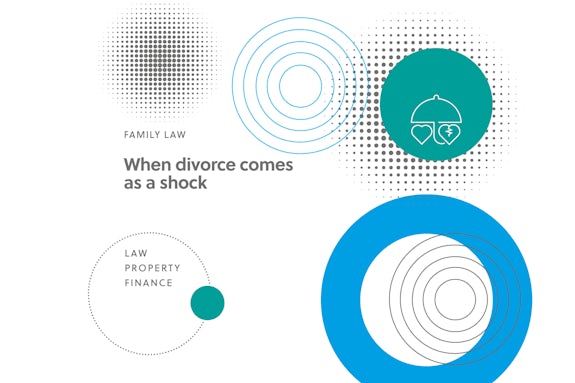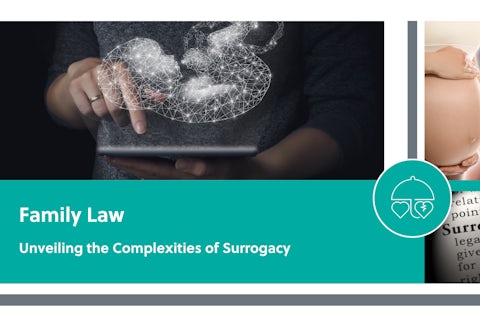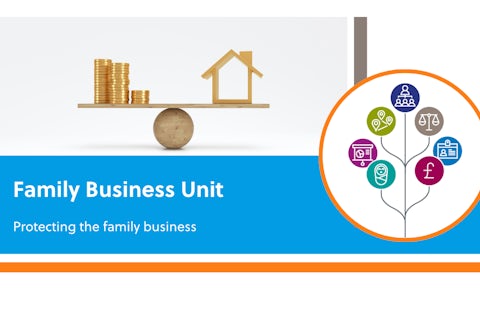In the second in a series of articles looking at the wider implications on mental health for couples and children during separation Ed Fitzgerald and Denise Laverty, accredited family law specialist and partner in our family law have joined with Myra Eadie, psychotherapist and collaborative family consultant to explain how working with other professionals can help negotiate the complex situations and feelings invoked by the trauma of divorce.
Sadly over 33.3% of marriages end in divorce. In 2018-19 7379 divorces were granted by the Scottish courts, an increase of 7.5% from the previous year. Whilst divorce is becoming more common place it can nevertheless often come as a shock to one of the spouses.
Separation and Divorce is often described as one of the most stressful periods in your life, second only to the loss of a loved one. Whether the marriage has broken down as a result of a specific event or a gradual drift in the relationship, our ability to cope with the breakdown of a marriage can be helped by acknowledging that the separation is a trauma. In one of our recent articles Denise Laverty has written in response to the research undertaken by Resolution, finding that 41 per cent who divorced within the last five years suffered mental health episodes.
From the very beginning, when a client comes to us looking for advice, we are highly aware that understanding how they are dealing with the separation emotionally, is as important as the legal advice we provide. Although our team has years of experience in helping our client’s through the emotional side of separation, there are often times where we feel a client would benefit from expert advice and we are fortunate to work closely with a number of health professionals including Myra Eadie, MBACP, a qualified psychotherapist and trained collaborative family consultant.
Like mediation, using the collaborative process to help resolve child and financial issues when a couple separates can minimise the impact of the separation on the couple and on their children. However the collaborative process may not be suitable for all separating couples and irrespective of whether or not that route is taken the emotional impact of separation can often result in a barrier to reaching an agreement.
Myra works both with individuals who are using the collaborative process and those who are not and has offered some guidance below for those who may be going through a separation.
What is the Role of the family consultant?
My role as a family consultant in a process of divorce/separation is to support and guide through communication with legal professionals face-to-face and with the divorcing/separating client(s) face-to-face.
This may seem a really difficult thing to do especially when divorcing/ separating couples have different ways of expressing or withdrawing their emotions but the short-term and long-term benefits for the whole family, especially the children, are immeasurable.
In the collaborative process family consultants provide help and support from the beginning of the process. They can safely help the divorcing/separating clients negotiate a way to be authentic and productive through the pain and hurt. Each divorcing/ separating individual will have a different way of expressing emotion and the family consultant will be able to help these individuals to be authentic with their feelings, for example, when fear is covered with anger, or sadness with hurt this leads to an impasse and a negative narrative around the present, past and future.
Such help and support is not restricted to couples using the collaborative process. Whatever option a client has chosen to take in my experience it is always more beneficial If a client seeks the support and help of a family consultant as early in the divorce/separation process as possible but whatever stage the client is at acknowledging that such support will be beneficial to them and accessing that help is the first step.
Divorce/Separation is a loss
Loss of:
- what you thought you had
- what you have now
- who you thought you were – your identity and self-worth
- your future – the dreams you had
Going through these losses is a grieving process. Each individual will react differently and the variety of emotions can be mis-communicated, mis-guided or mis-interpreted resulting in destructive behaviours emerging.
These self-defeating methods are destructive to the future of all individuals involved in the grieving process. This process is understood by the family consultant who guides, supports and with curiosity explores a step-by-step productive way through the hurt and pain. The overwhelming feelings lead to an impasse and normal coping mechanisms may not serve the divorcing/separating family well.
The cycle of grief is a process that the family will go through. It is worth noting that everyone will deal with the stages of grief in a different way and at a different rate. This makes understanding the emotions or lack of emotions in others difficult. Assumptions or catastrophies are made to accommodate or justify feelings and decisions. In these difficult times the collaborative coach helps bring understanding, clarification and support to the process.
What are the stages of grief?
There are four recognised stages of grief:
- Denial – bargaining – fear, anger, sadness, powerless, loss of control
- Acceptance – fear, anger, sadness, beginning to touch reality, overwhelmed
- Re-adjustment – ability to let go of anger, sadness and begin to face fears
- Relocation – healthy emotional connection with self and others
Each stage has similar emotions. However the intensity of those emotions will vary and it is not uncommon for each of the separating couple to be at a different stage in the cycle. Sometimes they can become stuck and this prevents them from being able to move on. The ‘stuckness’ can be maintained by the individuals and/or through the collusion of well-meaning other family members or friends. Although the impasse is uncomfortable an individual may find it more comfortable than the alternative unknown future.
By working together with the client the family consultant negotiates, explores and supports the individuals through these emotions in a safe way to recognise and use their strengths and skills in a way that will be invaluable to the family.
Exploring the process
The purpose of the process is to find solutions and support for the whole family.
That involves appropriate permissions from all involved in the process to include:
- to be heard
- to listen
- to be respected and respectful
- to be seen
- to maintain self-worth
I aim to help a client to learn how to:
- live outwith the relationship and support the children to have positive relationships with the other parent,
- to acknowledge their feelings and explore coping methods,
- to bring positive affirmations and support the process of change,
- remember that emotions are complex and individuals will move in and out of these emotions differently.
Grieving is a time to seek help from professionals who will guide and support towards making the best decisions for the family for the future. The family consultant can help negotiate these complex situations and feelings.
Myra Eadie, Collaborative Coach, Collaborative Trainer, Psychotherapist
If you would like further information regarding the topics discussed in this blog, please contact:
Denise Laverty by email: dlaverty@gilsongray.co.uk or by phone: 07841 921 985 / 0141 370 8130
Philippa Cunniff by email: pcunniff@gilsongray.co.uk or by phone: 07487 800 526 / 0131 285 4792
You can also visit our Family Law Team page by clicking here.
The information and opinions contained in this blog are for information only. They are not intended to constitute advice and should not be relied upon or considered as a replacement for advice. Before acting on any of the information contained in this blog, please seek specific advice from Gilson Gray.








